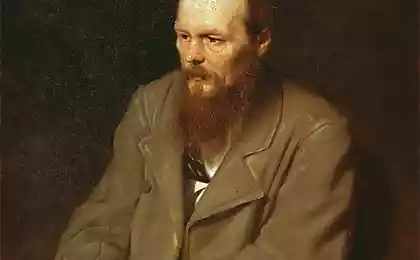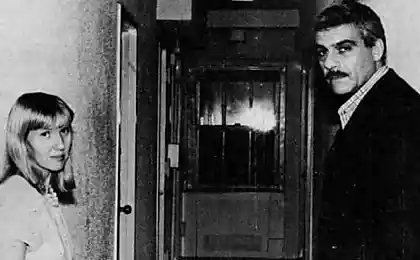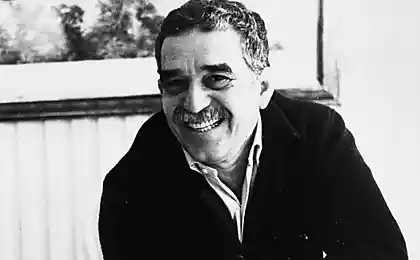793
5 Russian works that inspire foreign writers
Love poems Brodsky and Yevtushenko, why not choose the most obvious Dostoevsky's novel and what do you think about Anna Karenina.
Mary Gaitskill: "Anna Karenina" By Leo Tolstoy
Mary Gaitskill — American writer; her works, as a rule, the Central place is occupied by a heroine who is trying to overcome internal conflict.

Her books touch on many taboo topics, including prostitution, drug addiction and sadomasochism. According to the story of Gaitskill "Secretary" in 2001 was shot the same film with Maggie Gyllenhaal in the lead role. Gaitskill believes that only one scene can completely turn the reader view the hero is one of the most striking examples can be found in Leo Tolstoy's novel "Anna Karenina".
One scene in "Anna Karenina" was so beautiful and sophisticated that I even got up while I was reading it. I had to put the book down, so I was surprised and in my eyes, the novel has risen to a whole new level.
Anna said to her husband, Karenin, that she loves another man and sleeps with him. You have become accustomed to perceive Karenina as too proud, but a rather pathetic character: he's arrogant, relentless man. He is older than Anna, he's balding, he says absurdly shrill voice. He is against Anna. It is absolutely disgusting to him after got pregnant from her lover Vronsky. But first, you have the impression that most in this situation prejudiced his pride, and that makes him unsympathetic character.
Then he receives a telegram from Anna: "Die, please, I beg you to come. Die with forgiveness at ease." At first he thinks it's a hoax. He doesn't want to go. But then he realizes that it is too harsh and that his judge, he should. And he goes.
When he enters the house, where Anna lies dying in a delirium of fever, he thinks, if her illness is a fraud, then he would say nothing and leave. If she's really sick, dying and wishes to see him before he died, he would forgive her if he caught alive, and will pay their last respects, if you come too late.
Even in this moment he seems very adamant. We think that nothing can beat the coolness of this man. But when he sees that Anna is alive, it feels like a much hoped she was already dead, although the understanding of this shocks him.
Then he hears her talk. And her words are unexpected: she talks about how good he is. Which, of course, she knows he will forgive her. When she finally sees him, she looks at him with such love which he still did not know, and said:
"...there is another me, I'm afraid of her — she loved that, and I wanted to hate you and couldn't forget about the one that was before. That is not me. Now I'm real, I'm whole."
Anna says about the decisions she made, in the third person — as if Karenina had betrayed someone else. And it seems that she has changed, like he became a different person. I was so surprised. The idea of Tolstoy that we can be two men, maybe more. And it's not just Anna. Karenina while she talks about how she loves him, begging for forgiveness, he, too, is changing. The man who, as it seemed to us all the time be staunch and boring, it turns out, has a completely different way.
In the novel, showed that he always hated the concern, which makes him someone else's tears and sadness. But when he is suffering from this feeling in the words of Anna, he finally realizes that the compassion he feels for others, is not weakness. The first time he takes this response with joy; love and forgiveness is absolutely mind-boggling it. He kneels and starts to weep in the arms of Anna, she supports him and embraces his balding head. Quality, which he hated, — that is its essence, and this brings him peace. Do you believe that a full revolution, you believe that actually these people are just like that. I find it strange that the characters seem to be strongest in those moments when they behave like never before. I don't quite understand how this could be, but surprisingly, it works.
But then that moment passes. Anna never speaks of "the other", which is in her. At first I was disappointed, but then I thought: no, it's more realistic. What makes Tolstoy, even better because more true. We experience a greater sense of loss, knowing that something will never happen again.
In this scene I largely saw the essence of the book. Everyone says that "Anna Karenina" about the passion that goes against society, but I think something much bigger than just the opposite, namely how the forces of society to limit the expression of personality.
Steven Barthelme: "the Lady with the dog" by Anton Chekhov
Steven Barthelme is an American author of short stories and essays that were published in such publications as The New Yorker, The New York Times and The Atlantic. Several times worked in collaboration with his brothers: Donald (died in 1989) and Frederick. For example, together with Frederick Stephen wrote "the Stakes are doubled: Reflections on gambling and loss" — true story about how they lost in the cards all their inheritance. Now Barthelme teaches at the University of southern Mississippi.
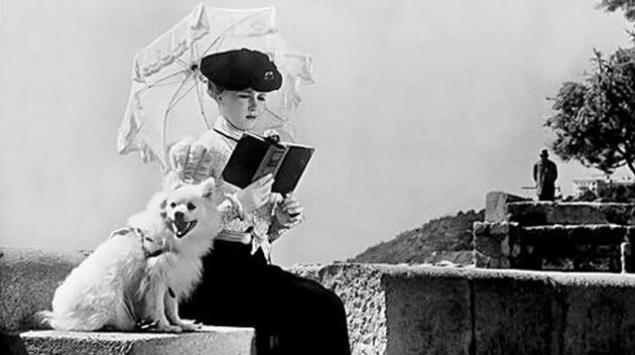
A strong impression on him made the story of Anton Chekhov "the lady with the dog". This work made him think that the writer should accept the world in all its imperfection.
As noted by many more eminent than I the writers, "the lady with the dog" — a terrific story full of memorable details. I admire it in those same moments, and Nabokov, for example, the scene when after sex Gurov cut watermelon for theatrical heroine sobbing about the loss of virtue, or inkwell in the form of a rider with a broken head in a provincial hotel.
But most of all I remember the passage towards the end, when the former philanderer thinks about getting old and about women, whom he knew:
"Why she loves him so? He always seemed to women not what he was, and loved in him not himself, but the man created by their imagination and which they eagerly sought; and then, when he noticed his mistake, still loved"
It's an amazing moment but still the best modern writers are also capable of this: thoughtful and open-minded author might notice a similar psychological irony and to recognize its value to the reader.
But thanks to the finale "...and then, when he noticed his mistake, still loved" — this passage is close to perfection; this turn under the force units (say, Alice Munro). Chekhov still, that remark of his character is illogical and unreasonable. He doesn't care whether this idea or bad, he is only interested in what people think so — and it is delicious. This is what poet Charles Simic called the proper subject of poetry: "the Surprise of what's right in front of you. Amazement before the world." The moral beliefs of most of the writers prevented them to see it, and even if they see most of them not enough exposure, not enough love for the world to recognize that the existing order of things in some way perfect. That's what, in my opinion, so adorable in Chekhov.
Katherine Harrison: "Love" By Joseph Brodsky
Catherine Harrison — American writer, the greatest (and quite controversial) fame which brought her memoir "the Kiss". In them she tells of the intimate relationship with his own father, which lasted four years. The book was accepted ambiguous: some critics, for example, noted that it "repulsive, but fine." Harrison also teaches at Hunter College of the City University of new York. According to Harrison, the Joseph Brodsky's poem "Love" helps us to understand the essence of the writer's work: the Creator need to think less and listen more to the unconscious.
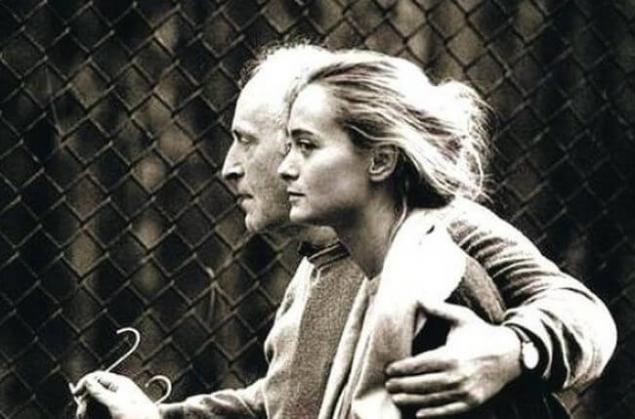
"Love" by Joseph Brodsky is a poem in which the hero dreams of a dead lover. In the dream - lost opportunities — the idea that they make love, have children and live together. At the end of the poem the author emphasizes the idea of loyalty, which goes beyond earthly life, in a sphere outside consciousness, nonmaterial, not comprehensible by the mind. We can say that is the realm of the mystical or ineffable. How to define it, but I believe in it.
Through all the poem Brodsky carries the contrast between light and darkness. In the dark memories of the woman from the dream absorb the narrator so much that it seems real. When he turns on the light, it evaporates:
...And raving to the window
I knew I left you alone
there in the dark, in the dream, where patiently
was waiting for you, and never blamed,
when I returned, the break
intentional.
Many processes occur precisely in the Kingdom of darkness. In the subconscious, in dreams, even, at some level, when communicating with other people without words. Under the darkness I don't mean darkness as the absence of light. I mean that part of life that cannot be understood by consciousness or analysis.
The essence of the poem lies in the line:
For in the dark
there lasts something snapped in the light
I think Brodsky implies that light can fix something in the material world, but there are limitations. For example, medicine can cure under the light. But if the spirit is sick, there is no life. And sometimes there's no other way to restore except through dreams and imagination.
This line also defines the creative process of the writer — at least as I see it. For me writing is a task which requires mental work, but it also nourishes the unconscious. My work is directed by the needs of my unconscious. And with this dark, obscure process I am able to recover what would otherwise be lost. For example, in the novel I can recover the lost voice — usually female — and give a voice to those who were forced to remain silent.
Now I teach writing. It's funny, but before I would and could not imagine that often repeat to his disciples: "Please, stop thinking". People do write better when I do not think, not listen to the voice of his consciousness.
Rupert Thomson: "Winter Station" By Yevgeny Yevtushenko
Rupert Thomson is a British writer, author of nine novels. It is often compared with such not similar to each other writers as Franz Kafka, Gabriel Garcia Marquez, Charles Dickens and James Ballard. Critic James wood called it "one of the strangest and most refreshingly non-English votes of modern fiction". His novel "Insult" was included in the list of 100 favorite books David Bowie.
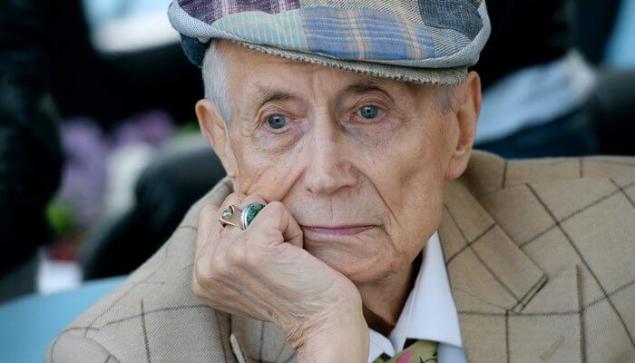
Rupert Thomson in his work often is inspired by a poem by Yevgeny Yevtushenko "Winter Station". This unusual interest he explains, in particular, his biography. Thomson grew up in a small town, from which he was impatient to leave. He dreamed of becoming a poet and often ran into the bookstore. Once there he had a collection of Yevtushenko, who, in turn, spent his childhood in a small Siberian town. This large world has made the Russian poet understood and loved young Thomson.
Yevtushenko's poem, "Winter Station" tells how the hero leaves his homeland and then returned. He published it in 1956, when he was 23. By this time he had already spent many years away from Winter, his life changed completely: he lived in Moscow, spoke with creative people, learn to write. In the poem Yevtushenko is that he returned home a completely different person, talking with family and friends, trying to reconcile adolescence and adulthood, rural life and their new environment.
At the end of the poem, the station Winter — the local train station itself speaks to the poet, in her words contain wisdom of the older generation. I like how the station asks the hero to leave home and go to the uncharted, uncertain horizons:
... Don't you worry, son, that did not respond
on the question that was asked of you.
You have patience, you ukladyvaya, listen,
look, look.
Going all white light.
Yes, truth is good,
but happiness is better
but still, without truth there is no happiness.
Go through the world with a proud head,
to all forward — and heart and eyes,
and in the face — whipping the wet needles,
and on my eyelashes — tears and rain.
Love people
and people will understand.
You remember:
I have you in sight.
And it will be difficult
you'll come back to me...
Go!"
And I went.
And I'm going.
There are so many wonderful tips on the subject of happiness, love, travel, people — there is almost everything you should think, and just a few short lines. I was always impressed with what generosity the revived station Winter asks the poet to leave her. When she speaks of the need to leave their origins, their roots and moving forward, her words reminiscent of words perfect parent — that parent who really loves his child, let him go, will do my best to he left, while insecure for their own sake will cause his child to stay. "And it will be difficult, you will return to me, says the station, conjuring him to leave and see the world beyond the threshold of the paternal home. — Go!" In this position there is a maturity and selflessness. Station Winter cares only about the fate of the poet and think about what is best for him.
The poem encourages us to move into the unknown — away from home, from himself to others. It is a call to step out of the comfort zone, geographically and psychologically, and to explore new places that can scare, surprise, or testing our strength. This idea applies to my thoughts about writing and art.
Ala al-Asuani: "house of the Dead" by Fyodor Dostoevsky
Ala al-Asuani — one of the major contemporary Egyptian writers, his novel "Vladimir" is the most notorious Arab novel of the XXI century: it has been translated into 34 languages, including Russian. Despite the popularity of his works, al-Asuani drop his day job: he's a practicing dentist. He also actively participates in the political life of Egypt. Significant work for him to become the "house of the Dead" by Fyodor Dostoevsky. According to al-Asuani, this book teaches readers to understand people, not judge, and not to divide the world into black and white.
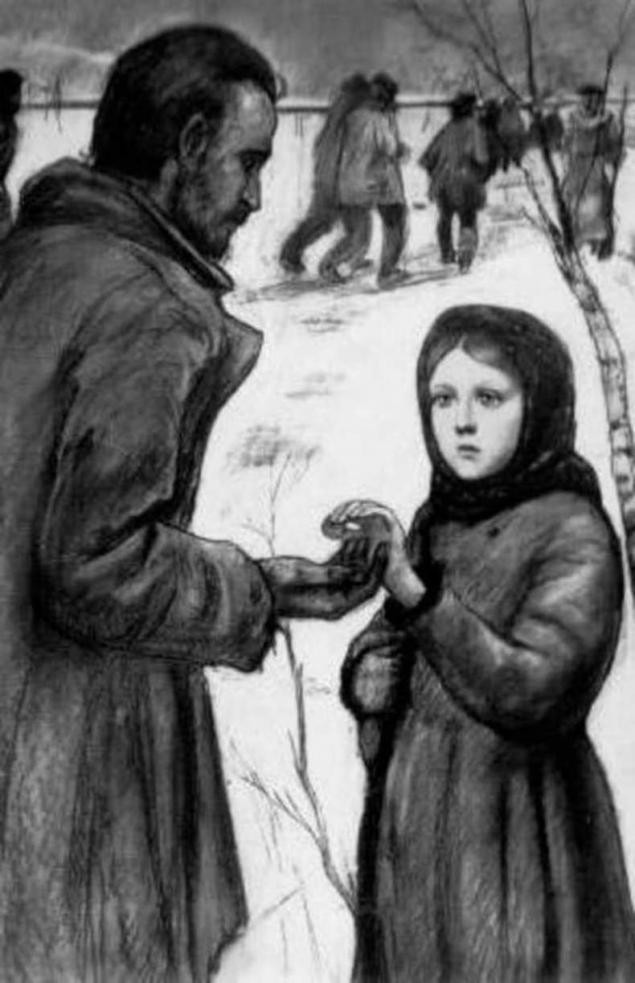
In "Notes from the Dead house" Dostoevsky tells the story of how four years at hard labor in Siberia. It was utter agony, and since he came from a noble family, that other prisoners always felt uneasy in his company. At that time in Russia, convicts were allowed to smack, and Dostoevsky describes this punishment with great feeling. Ultimately, it is through this book, the Emperor abolished flogging, so work plays an important role in the development of Russian society.
In the novel there is a scene where dying young prisoner. At this time standing next to the convict begins to cry. We must not forget that it is people who have committed terrible crimes. The author describes how a non-commissioned officer with a puzzled look at him. And then he says:
"Also because the mother was!"
"Also" plays an important role in this proposal. This man committed crimes. He did not bring benefits to society. His deeds were terrible. But he is also a man. He also had a mother, like all of us. For me the role of literature lies in this very "too". This means that we understand, we forgive, we condemn. We must remember that people are not inherently bad, but they can do bad things under certain circumstances.
For example, infidelity of the spouse we usually consider a bad thing. But there are two masterpiece of the novel who refuse to condemn such behavior: "Anna Karenina" and "Madame Bovary". The authors of these works try to explain to us why the heroine changed husbands. We don't judge, we try to understand their weaknesses and mistakes. The book is not a means of condemnation, it is a means of human understanding.
Accordingly, if you are a fanatic, you will never be able to evaluate the literature on dignity. And if you appreciate literature, you will never become a fanatic. Fanaticism divides the world into black and white: people are either good or bad. They are either with us or against us. Literature — the very antithesis of this worldview. It presents before us a wide range of human possibilities.
It teaches us to feel the pain of others. When you read a good novel, then forget about the nationality of the hero. You forget about his religion. The color of the skin. You just see a man. You understand that this man is the same as you. So thanks to books people can become better.published
P. S. And remember, only by changing their consumption — together we change the world! ©
Source: //theoryandpractice.ru/posts/15914-silnoe-vpechatlenie-5-russkikh-proizvedeniy-kotorye-vdokhnovlyayut-inostrannykh-pisateley
Mary Gaitskill: "Anna Karenina" By Leo Tolstoy
Mary Gaitskill — American writer; her works, as a rule, the Central place is occupied by a heroine who is trying to overcome internal conflict.

Her books touch on many taboo topics, including prostitution, drug addiction and sadomasochism. According to the story of Gaitskill "Secretary" in 2001 was shot the same film with Maggie Gyllenhaal in the lead role. Gaitskill believes that only one scene can completely turn the reader view the hero is one of the most striking examples can be found in Leo Tolstoy's novel "Anna Karenina".
One scene in "Anna Karenina" was so beautiful and sophisticated that I even got up while I was reading it. I had to put the book down, so I was surprised and in my eyes, the novel has risen to a whole new level.
Anna said to her husband, Karenin, that she loves another man and sleeps with him. You have become accustomed to perceive Karenina as too proud, but a rather pathetic character: he's arrogant, relentless man. He is older than Anna, he's balding, he says absurdly shrill voice. He is against Anna. It is absolutely disgusting to him after got pregnant from her lover Vronsky. But first, you have the impression that most in this situation prejudiced his pride, and that makes him unsympathetic character.
Then he receives a telegram from Anna: "Die, please, I beg you to come. Die with forgiveness at ease." At first he thinks it's a hoax. He doesn't want to go. But then he realizes that it is too harsh and that his judge, he should. And he goes.
When he enters the house, where Anna lies dying in a delirium of fever, he thinks, if her illness is a fraud, then he would say nothing and leave. If she's really sick, dying and wishes to see him before he died, he would forgive her if he caught alive, and will pay their last respects, if you come too late.
Even in this moment he seems very adamant. We think that nothing can beat the coolness of this man. But when he sees that Anna is alive, it feels like a much hoped she was already dead, although the understanding of this shocks him.
Then he hears her talk. And her words are unexpected: she talks about how good he is. Which, of course, she knows he will forgive her. When she finally sees him, she looks at him with such love which he still did not know, and said:
"...there is another me, I'm afraid of her — she loved that, and I wanted to hate you and couldn't forget about the one that was before. That is not me. Now I'm real, I'm whole."
Anna says about the decisions she made, in the third person — as if Karenina had betrayed someone else. And it seems that she has changed, like he became a different person. I was so surprised. The idea of Tolstoy that we can be two men, maybe more. And it's not just Anna. Karenina while she talks about how she loves him, begging for forgiveness, he, too, is changing. The man who, as it seemed to us all the time be staunch and boring, it turns out, has a completely different way.
In the novel, showed that he always hated the concern, which makes him someone else's tears and sadness. But when he is suffering from this feeling in the words of Anna, he finally realizes that the compassion he feels for others, is not weakness. The first time he takes this response with joy; love and forgiveness is absolutely mind-boggling it. He kneels and starts to weep in the arms of Anna, she supports him and embraces his balding head. Quality, which he hated, — that is its essence, and this brings him peace. Do you believe that a full revolution, you believe that actually these people are just like that. I find it strange that the characters seem to be strongest in those moments when they behave like never before. I don't quite understand how this could be, but surprisingly, it works.
But then that moment passes. Anna never speaks of "the other", which is in her. At first I was disappointed, but then I thought: no, it's more realistic. What makes Tolstoy, even better because more true. We experience a greater sense of loss, knowing that something will never happen again.
In this scene I largely saw the essence of the book. Everyone says that "Anna Karenina" about the passion that goes against society, but I think something much bigger than just the opposite, namely how the forces of society to limit the expression of personality.
Steven Barthelme: "the Lady with the dog" by Anton Chekhov
Steven Barthelme is an American author of short stories and essays that were published in such publications as The New Yorker, The New York Times and The Atlantic. Several times worked in collaboration with his brothers: Donald (died in 1989) and Frederick. For example, together with Frederick Stephen wrote "the Stakes are doubled: Reflections on gambling and loss" — true story about how they lost in the cards all their inheritance. Now Barthelme teaches at the University of southern Mississippi.

A strong impression on him made the story of Anton Chekhov "the lady with the dog". This work made him think that the writer should accept the world in all its imperfection.
As noted by many more eminent than I the writers, "the lady with the dog" — a terrific story full of memorable details. I admire it in those same moments, and Nabokov, for example, the scene when after sex Gurov cut watermelon for theatrical heroine sobbing about the loss of virtue, or inkwell in the form of a rider with a broken head in a provincial hotel.
But most of all I remember the passage towards the end, when the former philanderer thinks about getting old and about women, whom he knew:
"Why she loves him so? He always seemed to women not what he was, and loved in him not himself, but the man created by their imagination and which they eagerly sought; and then, when he noticed his mistake, still loved"
It's an amazing moment but still the best modern writers are also capable of this: thoughtful and open-minded author might notice a similar psychological irony and to recognize its value to the reader.
But thanks to the finale "...and then, when he noticed his mistake, still loved" — this passage is close to perfection; this turn under the force units (say, Alice Munro). Chekhov still, that remark of his character is illogical and unreasonable. He doesn't care whether this idea or bad, he is only interested in what people think so — and it is delicious. This is what poet Charles Simic called the proper subject of poetry: "the Surprise of what's right in front of you. Amazement before the world." The moral beliefs of most of the writers prevented them to see it, and even if they see most of them not enough exposure, not enough love for the world to recognize that the existing order of things in some way perfect. That's what, in my opinion, so adorable in Chekhov.
Katherine Harrison: "Love" By Joseph Brodsky
Catherine Harrison — American writer, the greatest (and quite controversial) fame which brought her memoir "the Kiss". In them she tells of the intimate relationship with his own father, which lasted four years. The book was accepted ambiguous: some critics, for example, noted that it "repulsive, but fine." Harrison also teaches at Hunter College of the City University of new York. According to Harrison, the Joseph Brodsky's poem "Love" helps us to understand the essence of the writer's work: the Creator need to think less and listen more to the unconscious.

"Love" by Joseph Brodsky is a poem in which the hero dreams of a dead lover. In the dream - lost opportunities — the idea that they make love, have children and live together. At the end of the poem the author emphasizes the idea of loyalty, which goes beyond earthly life, in a sphere outside consciousness, nonmaterial, not comprehensible by the mind. We can say that is the realm of the mystical or ineffable. How to define it, but I believe in it.
Through all the poem Brodsky carries the contrast between light and darkness. In the dark memories of the woman from the dream absorb the narrator so much that it seems real. When he turns on the light, it evaporates:
...And raving to the window
I knew I left you alone
there in the dark, in the dream, where patiently
was waiting for you, and never blamed,
when I returned, the break
intentional.
Many processes occur precisely in the Kingdom of darkness. In the subconscious, in dreams, even, at some level, when communicating with other people without words. Under the darkness I don't mean darkness as the absence of light. I mean that part of life that cannot be understood by consciousness or analysis.
The essence of the poem lies in the line:
For in the dark
there lasts something snapped in the light
I think Brodsky implies that light can fix something in the material world, but there are limitations. For example, medicine can cure under the light. But if the spirit is sick, there is no life. And sometimes there's no other way to restore except through dreams and imagination.
This line also defines the creative process of the writer — at least as I see it. For me writing is a task which requires mental work, but it also nourishes the unconscious. My work is directed by the needs of my unconscious. And with this dark, obscure process I am able to recover what would otherwise be lost. For example, in the novel I can recover the lost voice — usually female — and give a voice to those who were forced to remain silent.
Now I teach writing. It's funny, but before I would and could not imagine that often repeat to his disciples: "Please, stop thinking". People do write better when I do not think, not listen to the voice of his consciousness.
Rupert Thomson: "Winter Station" By Yevgeny Yevtushenko
Rupert Thomson is a British writer, author of nine novels. It is often compared with such not similar to each other writers as Franz Kafka, Gabriel Garcia Marquez, Charles Dickens and James Ballard. Critic James wood called it "one of the strangest and most refreshingly non-English votes of modern fiction". His novel "Insult" was included in the list of 100 favorite books David Bowie.

Rupert Thomson in his work often is inspired by a poem by Yevgeny Yevtushenko "Winter Station". This unusual interest he explains, in particular, his biography. Thomson grew up in a small town, from which he was impatient to leave. He dreamed of becoming a poet and often ran into the bookstore. Once there he had a collection of Yevtushenko, who, in turn, spent his childhood in a small Siberian town. This large world has made the Russian poet understood and loved young Thomson.
Yevtushenko's poem, "Winter Station" tells how the hero leaves his homeland and then returned. He published it in 1956, when he was 23. By this time he had already spent many years away from Winter, his life changed completely: he lived in Moscow, spoke with creative people, learn to write. In the poem Yevtushenko is that he returned home a completely different person, talking with family and friends, trying to reconcile adolescence and adulthood, rural life and their new environment.
At the end of the poem, the station Winter — the local train station itself speaks to the poet, in her words contain wisdom of the older generation. I like how the station asks the hero to leave home and go to the uncharted, uncertain horizons:
... Don't you worry, son, that did not respond
on the question that was asked of you.
You have patience, you ukladyvaya, listen,
look, look.
Going all white light.
Yes, truth is good,
but happiness is better
but still, without truth there is no happiness.
Go through the world with a proud head,
to all forward — and heart and eyes,
and in the face — whipping the wet needles,
and on my eyelashes — tears and rain.
Love people
and people will understand.
You remember:
I have you in sight.
And it will be difficult
you'll come back to me...
Go!"
And I went.
And I'm going.
There are so many wonderful tips on the subject of happiness, love, travel, people — there is almost everything you should think, and just a few short lines. I was always impressed with what generosity the revived station Winter asks the poet to leave her. When she speaks of the need to leave their origins, their roots and moving forward, her words reminiscent of words perfect parent — that parent who really loves his child, let him go, will do my best to he left, while insecure for their own sake will cause his child to stay. "And it will be difficult, you will return to me, says the station, conjuring him to leave and see the world beyond the threshold of the paternal home. — Go!" In this position there is a maturity and selflessness. Station Winter cares only about the fate of the poet and think about what is best for him.
The poem encourages us to move into the unknown — away from home, from himself to others. It is a call to step out of the comfort zone, geographically and psychologically, and to explore new places that can scare, surprise, or testing our strength. This idea applies to my thoughts about writing and art.
Ala al-Asuani: "house of the Dead" by Fyodor Dostoevsky
Ala al-Asuani — one of the major contemporary Egyptian writers, his novel "Vladimir" is the most notorious Arab novel of the XXI century: it has been translated into 34 languages, including Russian. Despite the popularity of his works, al-Asuani drop his day job: he's a practicing dentist. He also actively participates in the political life of Egypt. Significant work for him to become the "house of the Dead" by Fyodor Dostoevsky. According to al-Asuani, this book teaches readers to understand people, not judge, and not to divide the world into black and white.

In "Notes from the Dead house" Dostoevsky tells the story of how four years at hard labor in Siberia. It was utter agony, and since he came from a noble family, that other prisoners always felt uneasy in his company. At that time in Russia, convicts were allowed to smack, and Dostoevsky describes this punishment with great feeling. Ultimately, it is through this book, the Emperor abolished flogging, so work plays an important role in the development of Russian society.
In the novel there is a scene where dying young prisoner. At this time standing next to the convict begins to cry. We must not forget that it is people who have committed terrible crimes. The author describes how a non-commissioned officer with a puzzled look at him. And then he says:
"Also because the mother was!"
"Also" plays an important role in this proposal. This man committed crimes. He did not bring benefits to society. His deeds were terrible. But he is also a man. He also had a mother, like all of us. For me the role of literature lies in this very "too". This means that we understand, we forgive, we condemn. We must remember that people are not inherently bad, but they can do bad things under certain circumstances.
For example, infidelity of the spouse we usually consider a bad thing. But there are two masterpiece of the novel who refuse to condemn such behavior: "Anna Karenina" and "Madame Bovary". The authors of these works try to explain to us why the heroine changed husbands. We don't judge, we try to understand their weaknesses and mistakes. The book is not a means of condemnation, it is a means of human understanding.
Accordingly, if you are a fanatic, you will never be able to evaluate the literature on dignity. And if you appreciate literature, you will never become a fanatic. Fanaticism divides the world into black and white: people are either good or bad. They are either with us or against us. Literature — the very antithesis of this worldview. It presents before us a wide range of human possibilities.
It teaches us to feel the pain of others. When you read a good novel, then forget about the nationality of the hero. You forget about his religion. The color of the skin. You just see a man. You understand that this man is the same as you. So thanks to books people can become better.published
P. S. And remember, only by changing their consumption — together we change the world! ©
Source: //theoryandpractice.ru/posts/15914-silnoe-vpechatlenie-5-russkikh-proizvedeniy-kotorye-vdokhnovlyayut-inostrannykh-pisateley
The method of Dr. Mac-Ferrini: cleansing of the body through the skin
10 reasons why no one knows how to live in your 20


